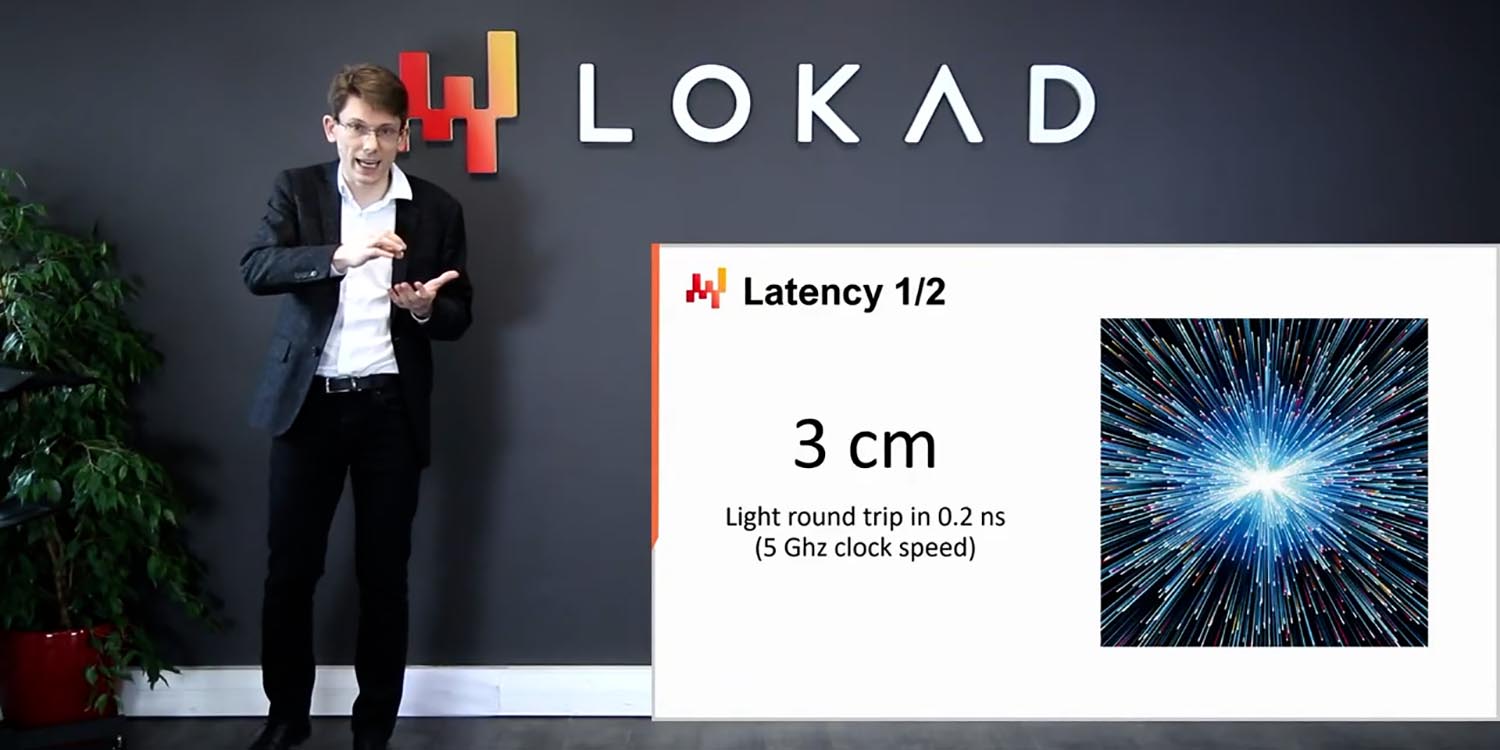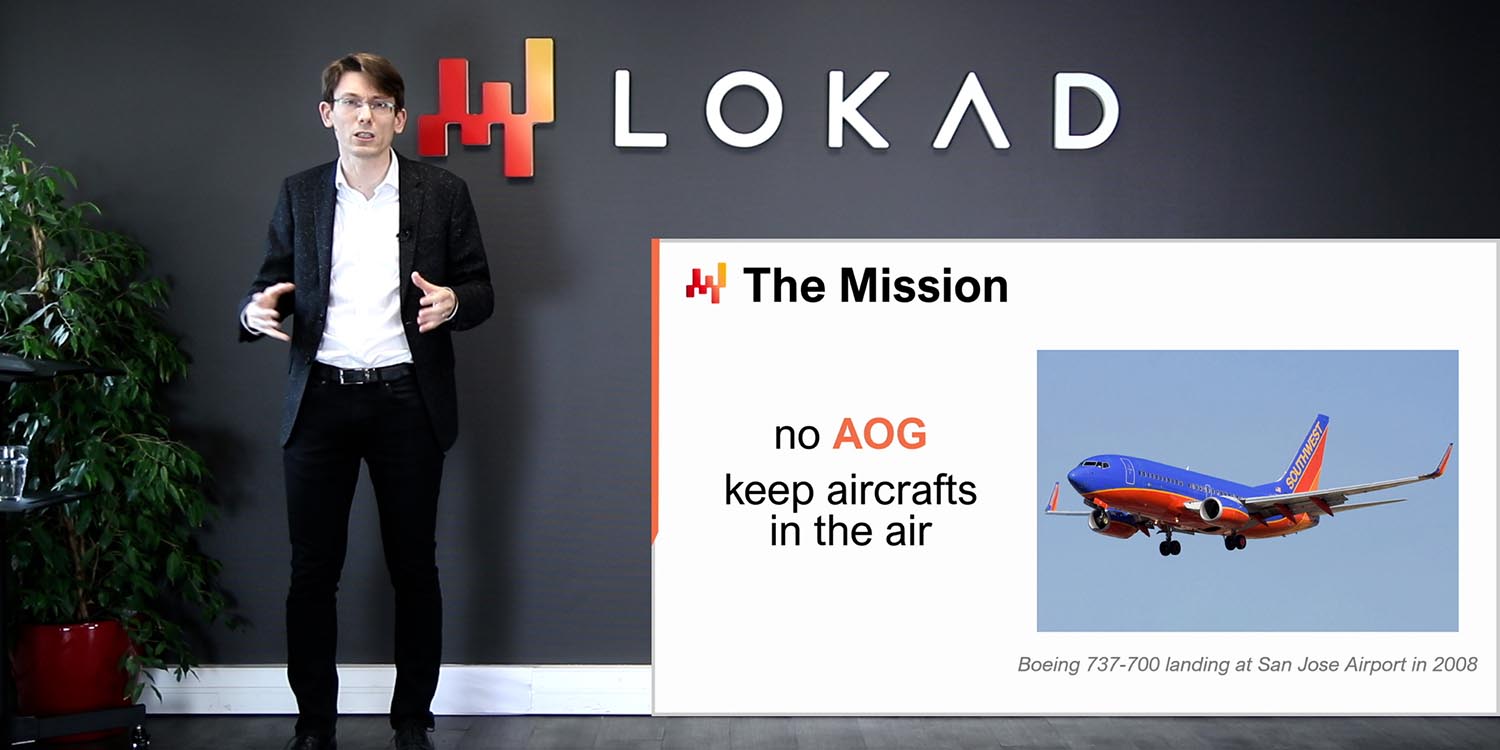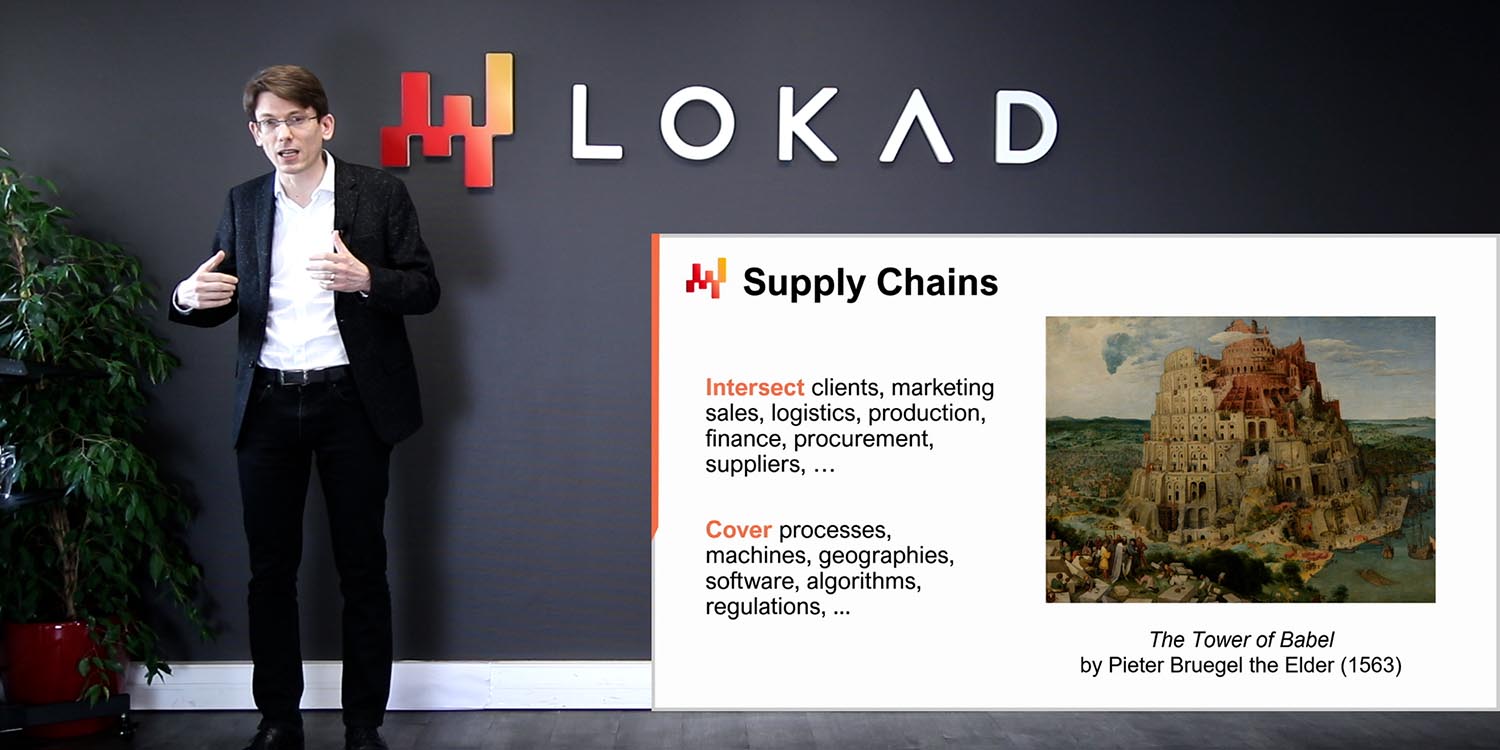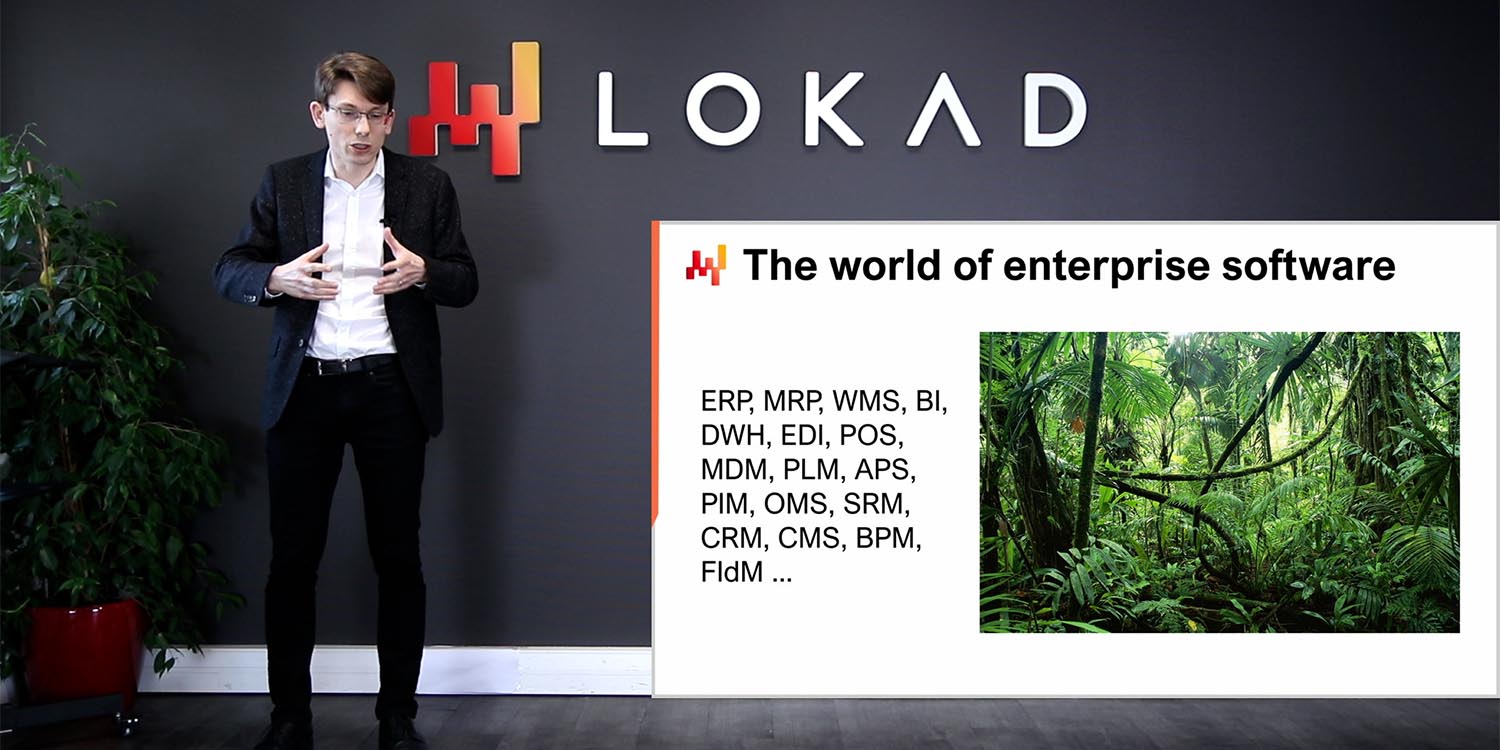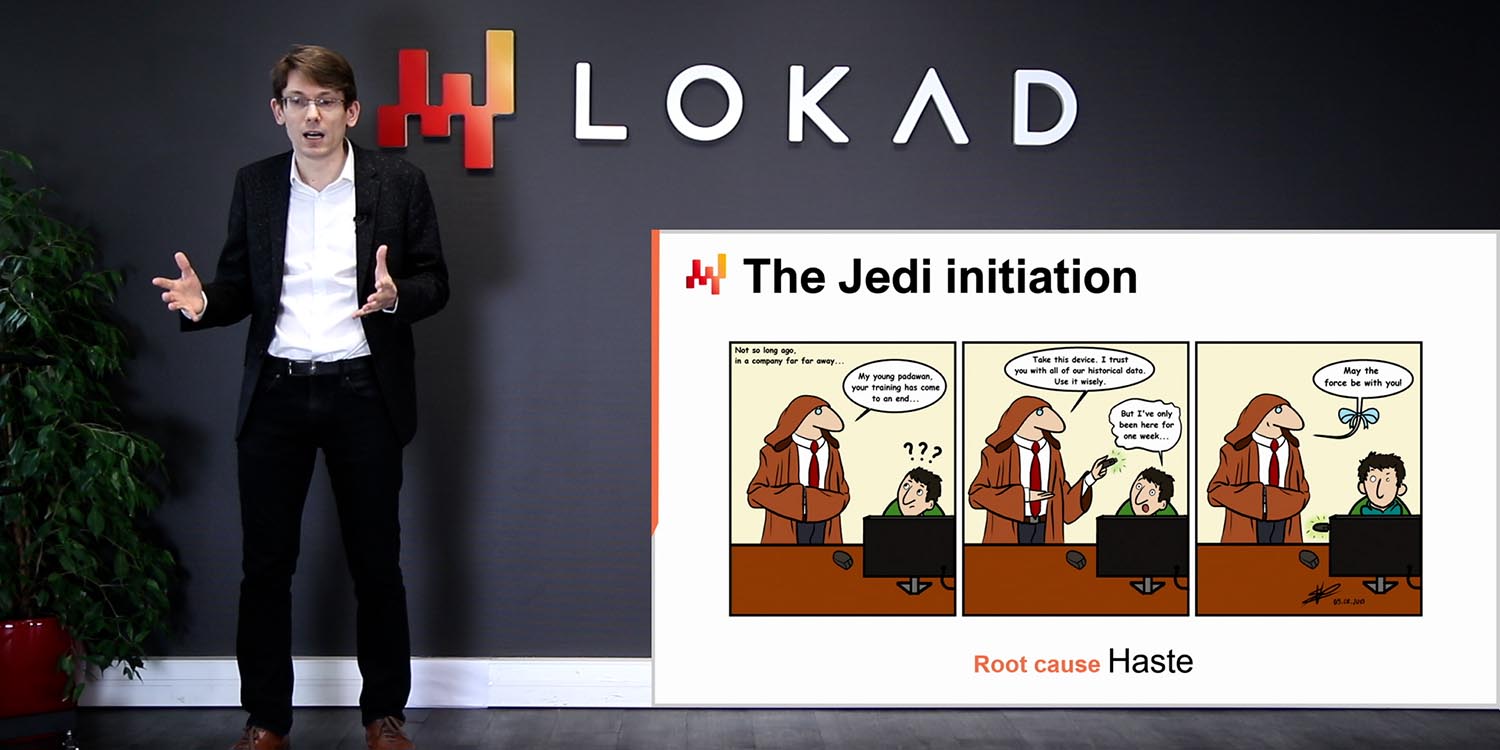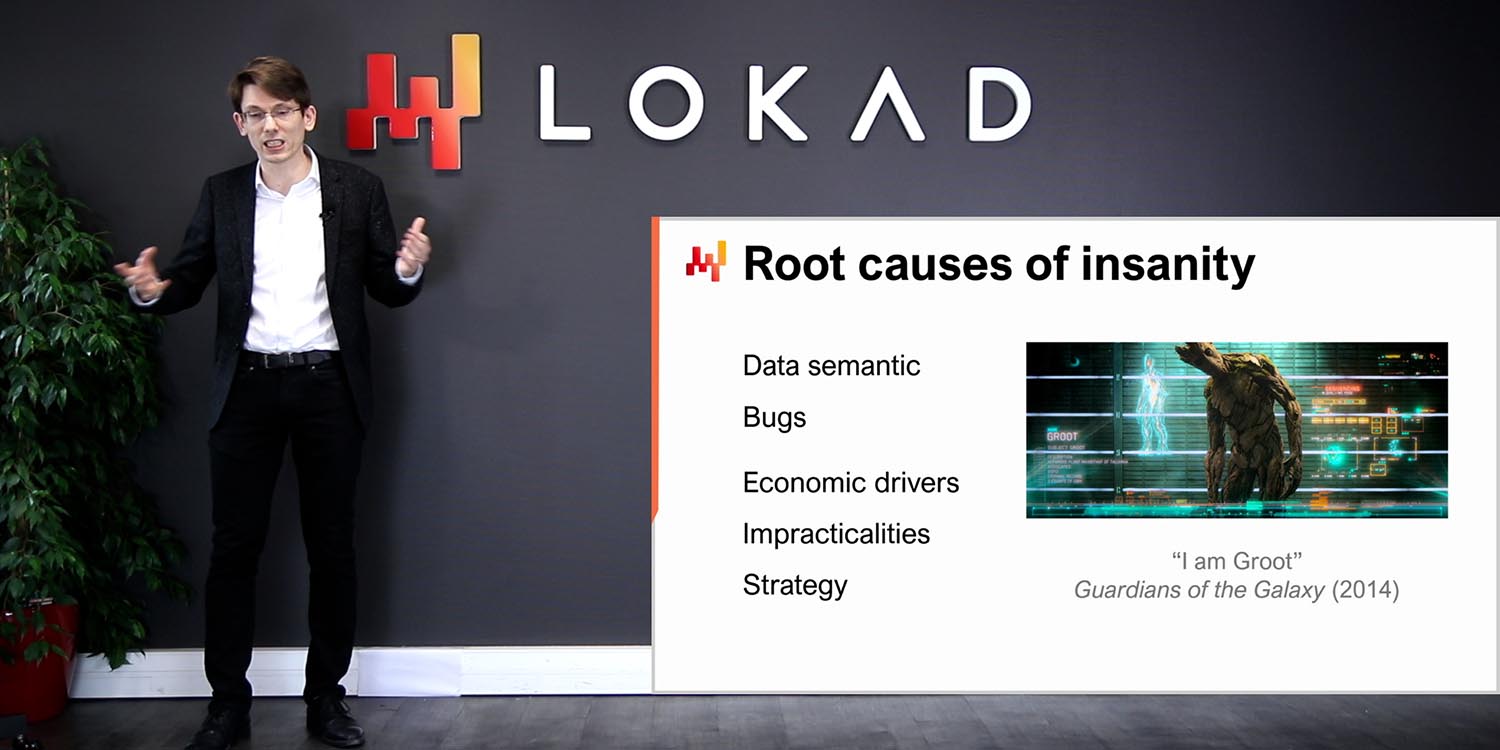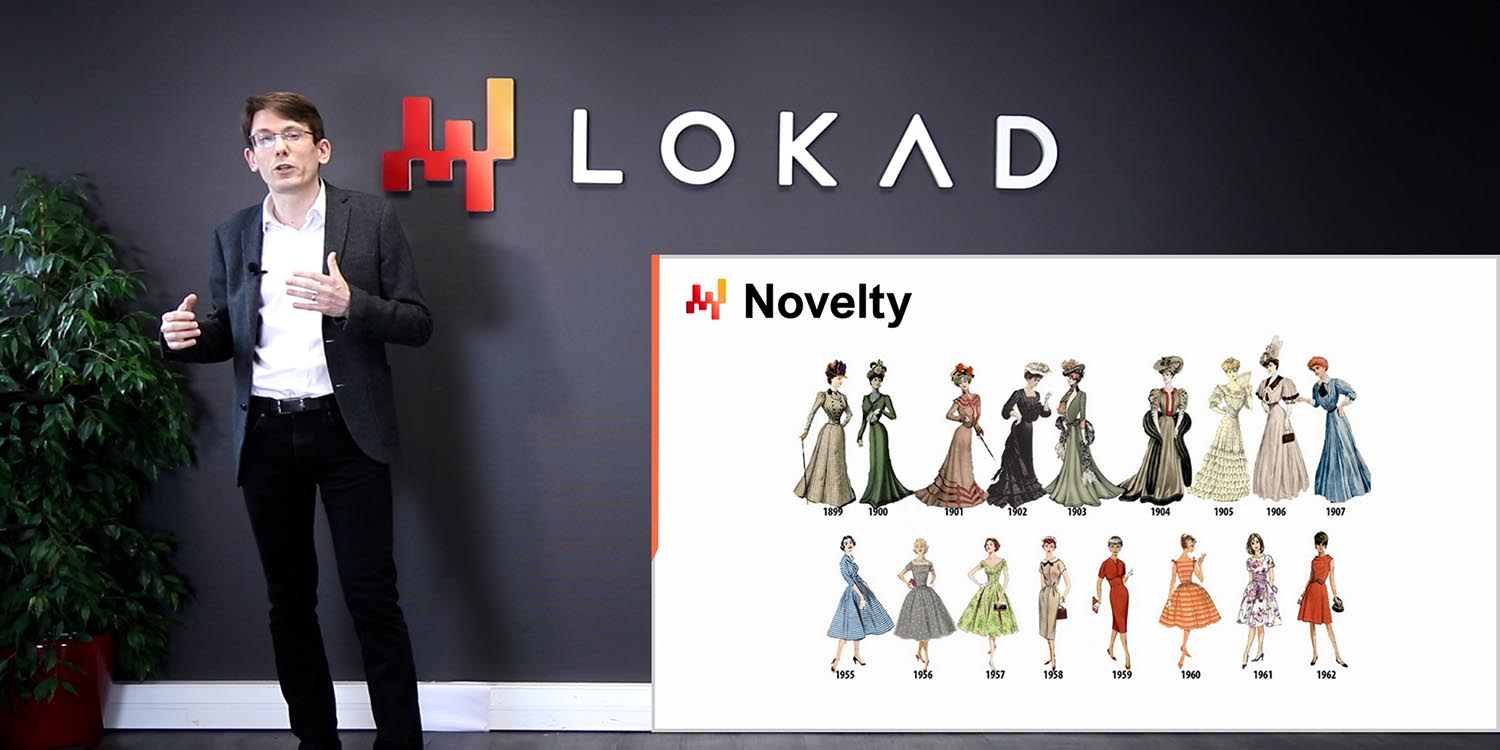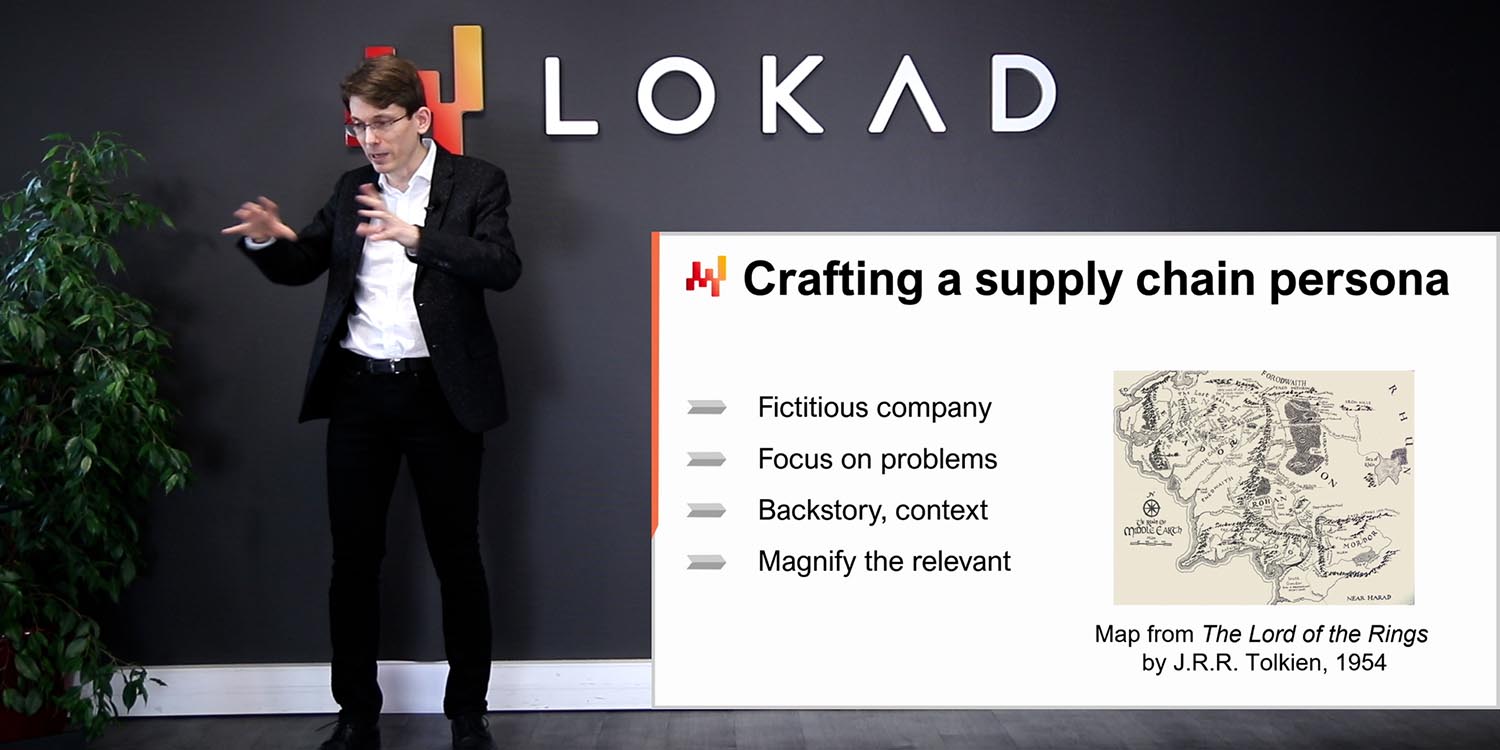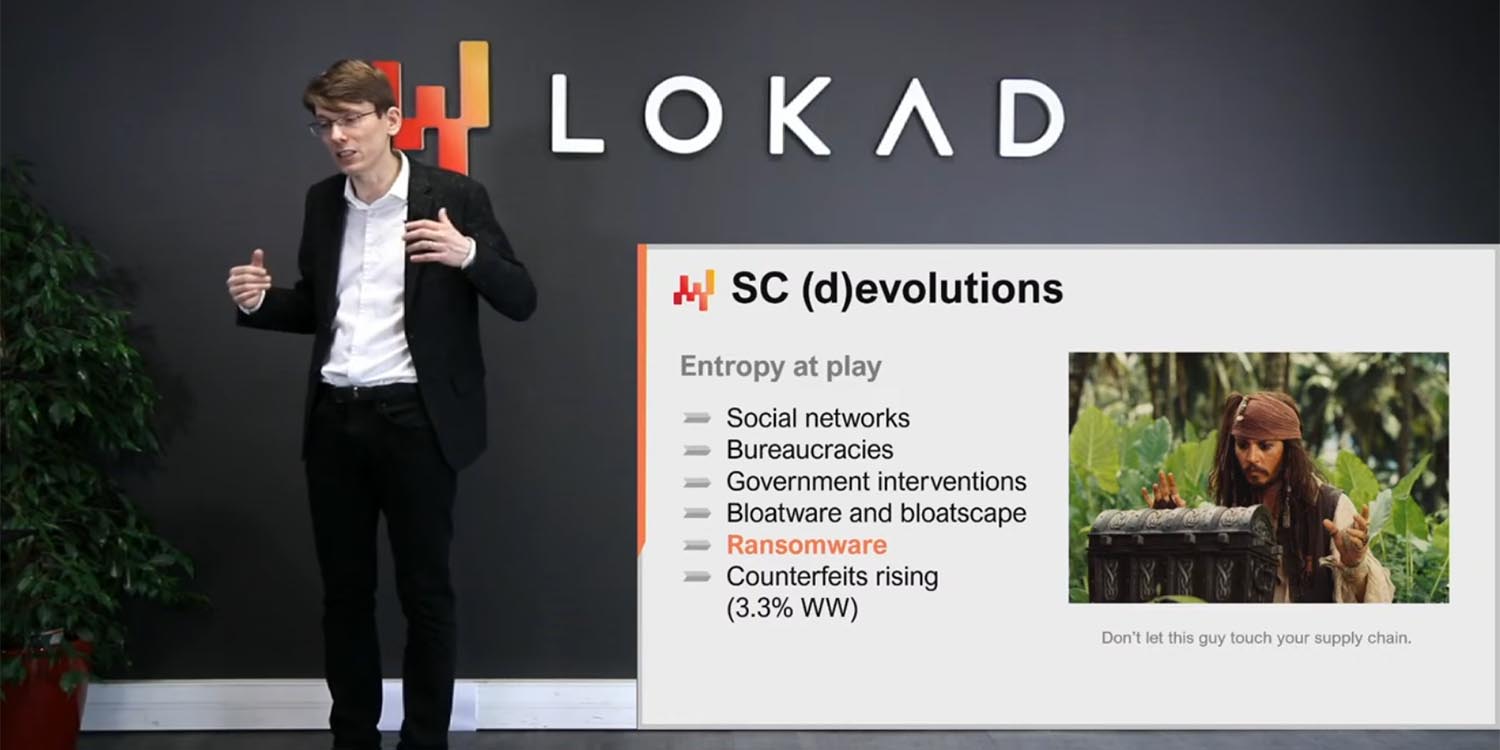Supply Chain Lectures
BACK TO LOKAD TV ›
Modern computers for supply chain - Lecture 4.1
Modern supply chains require computing resources to operate just like motorized conveyor belts require electricity. Yet, sluggish supply chain systems remain ubiquitous, while the processing power of computers has increased by a factor greater than 10,000x since 1990. A lack of understanding of the fundamental characteristics of modern computing resources - even among IT or data science circles - goes a long way in explaining this state of affairs. The software design underlying the numerical recipes shouldn’t antagonize the underlying computing substrate.
Miami, an aviation MRO (persona) - Lecture 3.1
Miami is a fictitious aviation MRO (maintenance, repair, overhaul) in the USA serving a large fleet of commercial aircraft. In aviation, security is paramount. Parts and components must be routinely inspected and potentially repaired. Miami is in the business of keeping aircraft in the air at all times, avoiding AOG (aircraft on ground) incidents, which happen whenever a part needed to conduct a maintenance operation is missing.
Writing for supply chains - Lecture 2.5
Supply chains involve the coordination of large teams. Thus, written materials are king. Modern supply chains are simply not compatible with oral tradition. Yet, supply chain practitioners often fare terribly as far as their written communication skills are concerned. Let’s review what usability studies, and some notable experts, have to say on these matters.
Adversarial market research for enterprise software - Lecture 2.4
Modern supply chains depend on a myriad of software products. Picking the right vendors is a matter of survival. However, as the number of vendors is large, companies need a systematic approach in this undertaking. The traditional market research practice starts with good intent but invariably ends up with bad outcomes, as market research firms end up acting as marketing fronts for the companies they are supposed to analyze. The hope that an unbiased research firm will emerge is misplaced. However, the vendor-on-vendor assessment is a methodology that allows even a biased market research firm to produce unbiased results.
Negative Knowledge in Supply Chain - Lecture 2.3
Antipatterns are the stereotypes of solutions that look good but don’t work in practice. The systematic study of antipatterns was pioneered in the late 1990s by the field of software engineering. When applicable, antipatterns are superior to raw negative results, as they are easier to memorize and reason about. The antipattern perspective is of prime relevance to supply chain, and should be considered as one of the pillars for its negative knowledge.
Experimental Optimization - Lecture 2.2
Far from the naïve Cartesian perspective where optimization would just be about rolling-out an optimizer for a given score function, supply chain requires a much more iterative process. Each iteration is used to identify insane decisions that are to be investigated. The root cause is frequently improper economic drivers, which need to be re-assessed in regards to their unintended consequences. The iterations stop when the numerical recipes no longer produce insane results.
Paris, a fashion retail network (persona) - Lecture 2.1.1
Paris is a fictitious European fashion brand operating a large retail network. The brand targets women and positions itself as being relatively affordable. While the design line is relatively classic and sober, the main business driver has always been novelty. Multiple collections per year are used to push waves of new products. Pushing the right product, at the right time, at the right price and with the right stock quantity is one of the core challenges.
Supply Chain Personae - Lecture 2.1
A supply chain persona is a fictitious company. Yet, while the company is fictive, this fiction is engineered to outline what deserves attention from a supply chain perspective. However, the persona is not idealized in the sense of simplifying the supply chain challenges. On the contrary, the intent is to magnify the most challenging aspects of the situation, the aspects that will most stubbornly resist any attempt at quantitative modelling and any attempt piloting an initiative to improve the supply chain.
Quantitative principles for supply chains - Lecture 1.6
While supply chains can’t be characterized by definitive quantitative laws - unlike electromagnetism - general quantitative principles can still be observed. By 'general', we mean applicable to (almost) all supply chains. Uncovering such principles is of prime interest because they can be used to facilitate the engineering of numerical recipes intended for the predictive optimization of supply chains, but they can also be used to make those numerical recipes more powerful overall. We review two short lists of principles":" a few observational principles and a few optimization principles.
21st Century Trends in Supply Chain - Lecture 1.5
A few major trends have been dominating the evolution of supply chains over the last decades, largely reshaping the mix of challenges faced by companies. Some problems have largely faded away, such as physical hazards and quality issues. Some problems have risen, such as overall complexity and competition intensity. Notably, software is also reshaping supply chains in profound ways. A quick survey of these trends helps us understand what should be the focus of a supply chain theory.
